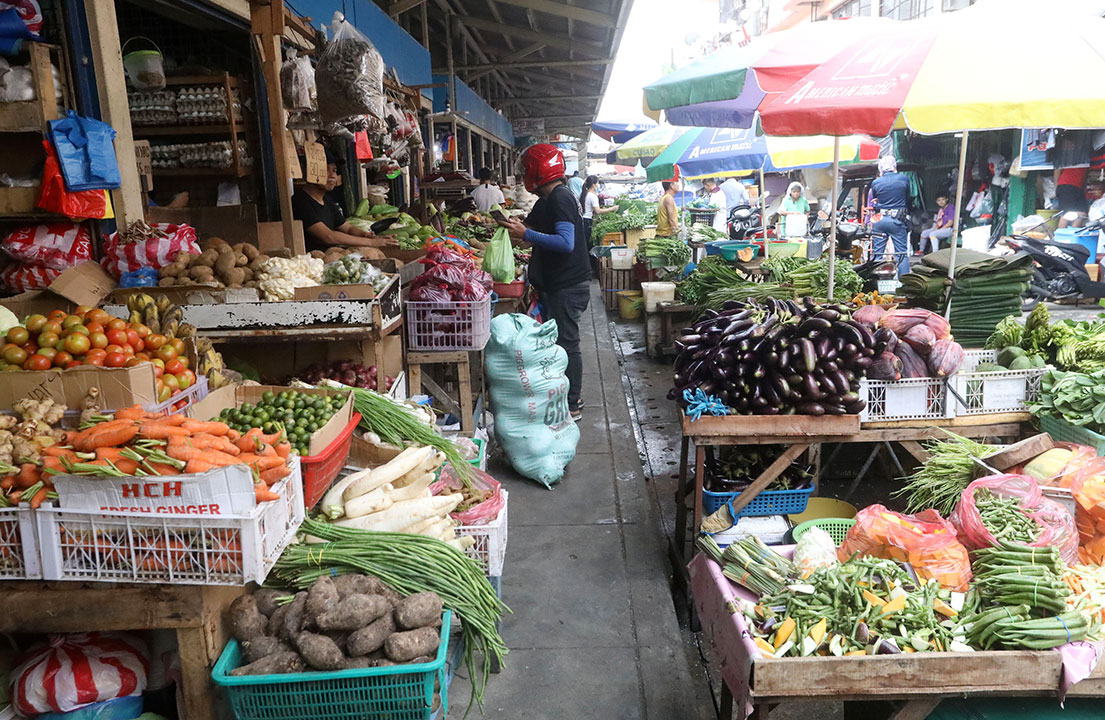BSP says November inflation likely between 4-4.8%

By Keisha B. Ta-asan, Reporter
The Philippines’ headline inflation may have settled within the range of 4% to 4.8% in November, according to the Bangko Sentral ng Pilipinas (BSP), citing mitigating factors such as lower vegetable prices, reduced oil costs, and a stronger peso.
If realized, inflation would fall from 7% a year ago and 4.9% in October. It could also be within the BSP’s 2-4% target, ending 19 straight months of above-target inflation. The Philippine Statistics Authority will release the November inflation data on Dec. 5 (Tuesday).
“Higher prices of most agricultural commodities like rice, fruit, fish, and meat items and adjustments in electricity, LPG (liquefied petroleum gas), and toll rates are the primary sources of upward price pressures in November,” the BSP said in a statement on Thursday.
Manila Electric Co. said the power rates for typical households increased by P0.2347 per kilowatt-hour (kWh) to P12.0545/kWh in November due to higher transmission charges.
LPG prices increased by P0.45 a kilogram in November, its fourth straight month of increase. The cost of a regular 11-kg LPG tank rose by P4.95 to P5.50.
“Meanwhile, lower prices of vegetables and petroleum products along with the peso appreciation could contribute to downward price pressures,” the central bank said.
In November alone, pump price adjustments stood at a net decrease of P1.9 a liter for gasoline, P4.45 a liter for diesel, and P3.3 a liter for kerosene.
The peso also rebounded to the P55-a-dollar mark in November, closing at P55.485 on Thursday, up by P1.245 or 2.2% from its P56.73 finish on Oct. 31.
“Going forward, the BSP will continue to monitor developments affecting the outlook for inflation and growth in line with its data dependent approach to monetary policy formulation,” the BSP added.
The BSP sees inflation averaging 6% for this year and 3.7% for 2024, before easing to 3.2% in 2025.
BSP Governor Eli M. Remolona, Jr. has said inflation would likely stay above 2-4% in the first half of 2024 before slowing down in July.
To tame inflation, the Monetary Board raised borrowing costs by 425 basis points (bps) from May 2022 to October 2023, bringing the key interest rate to 6.5%, the highest in 16 years.
Enrico P. Villanueva, senior lecturer of economics at the University of the Philippines Los Baños, said inflation may ease within the 2-4% next year.
He said there are concerns about the impact of El Niño on food prices, but he hopes the new secretary of the Department of Agriculture will have measures to address the weather event.
“Once inflation comes within target range, I hope BSP will consider small rate cuts of 25bps throughout 2024 to bring down cost of doing business and reduce household loan interest payments,” he said in a text message.
The BSP’s last policy-setting meeting for the year is on Dec. 14.



